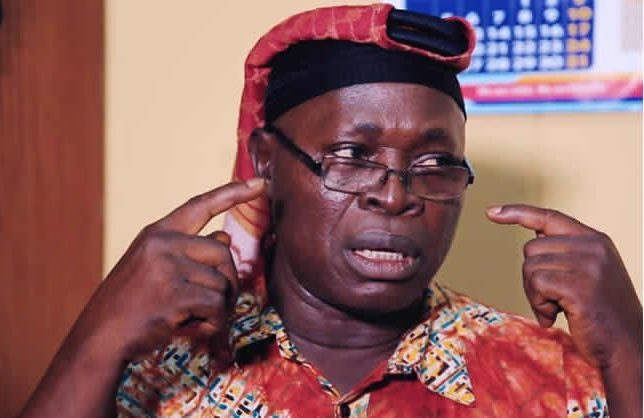As 2024 comes to a close, the Nigerian 10th Senate, under the leadership of Senate President Godswill Akpabio, has emerged as a dynamic and purposeful institution. Tasked with navigating complex national challenges, the Senate has achieved a balance of cordiality with the executive and the rigorous performance of its oversight functions, demonstrating that harmony between the branches of government does not equate to subservience.
Contrary to critics who have labeled the 10th Senate a “rubber stamp,” this legislative body has proven itself capable of independent action and assertive policymaking. The Senate’s legislative achievements in 2024 highlight its dedication to governance that prioritizes the Nigerian people. Through strategic reforms, inclusive policymaking, and effective oversight, the 10th National Assembly has redefined the possibilities of constructive collaboration between the executive and legislative branches.
Key Achievements of the 10th Senate
Expanding Access to Education
The Student Loan Act, which provides interest-free loans to tertiary institution students, remains one of the Senate’s hallmark achievements. This legislation ensures that no Nigerian student is left behind due to financial constraints, reflecting the Senate’s commitment to empowering the nation’s youth and fostering upward mobility.
Economic Stabilization and Recovery
The National Economic Stabilization and Recovery Act has laid the foundation for economic resilience. By curbing inflation, attracting foreign investment, and streamlining government spending, the Senate has positioned Nigeria for growth while prioritizing job creation and improved living standards.
National Security Overhaul
The National Security Architecture Act restructured Nigeria’s security framework, enhancing coordination and responsiveness to national threats. By pairing this legislation with robust funding and oversight, the Senate has addressed one of Nigeria’s most pressing issues.
Strengthening Social Welfare and Healthcare
The Universal Healthcare Coverage Act and increased funding for education underline the Senate’s commitment to human capital development. These initiatives have expanded access to affordable healthcare and improved education infrastructure, particularly in underserved communities.
Petroleum Industry Reforms
Through the Petroleum Industry Reform Act, the Senate tackled inefficiencies in Nigeria’s oil and gas sector. This legislation improved transparency, increased revenue generation, and incorporated environmental sustainability, ensuring a sustainable future for one of Nigeria’s most critical industries.
Creation of Regional Development Commissions
Recognizing the need for targeted solutions to Nigeria’s diverse challenges, the Senate championed the creation of regional development commissions. These commissions address region-specific issues such as infrastructure deficits, youth unemployment, and environmental degradation. By tailoring development efforts to the unique needs of each region, the Senate has taken a significant step toward balanced national progress.
Constructive Collaboration, Not Subservience
The 10th Senate has found the delicate balance between working cordially with the executive and performing its constitutional oversight duties. Senate President Akpabio’s leadership has ensured that collaboration does not come at the expense of legislative independence. The Senate has engaged the executive constructively, supporting policies in the national interest while holding the government accountable through rigorous oversight mechanisms.
This approach contrasts sharply with the counterproductive conflicts seen in previous administrations, where discord between the executive and the legislature often stalled critical reforms. The 10th Senate recognizes that such confrontations only harm the Nigerian people, who deserve governance that works in harmony to deliver results. By fostering dialogue and compromise, the Senate has shown that effective governance thrives on mutual respect and shared objectives.
A Legacy of Purpose-Driven Governance
The legislative gains of 2024 reflect the 10th Senate’s resolve to serve as a beacon of hope for Nigerians. From expanding access to education to transformative reforms in healthcare, economic policy, and the creation of regional development commissions, the Senate has laid the groundwork for inclusive and sustainable national development.
As the curtain falls on 2024, the 10th Senate leaves behind a legacy of impactful governance, characterized by independence, innovation, and collaboration. Its efforts have set a standard for future legislatures, proving that a united government, underpinned by mutual respect, can deliver lasting benefits to its people. The road ahead remains challenging, but the strides made this year provide a foundation for continued progress and prosperity for all Nigerians.
Customs Contribution Crucial for Actualising Proposed Nigeria’s ₦48 Trillion 2025 Budget – Finance Minister
The Nigeria Customs Service (NCS) has been commended for its pivotal role in boosting Nigeria’s economic recovery, as the Federal Government sets a ₦48 trillion expenditure target for 2025.
The Nigeria Minister of Finance, Mr Olawale Edun, highlighted the NCS’s importance during the 61st quarterly board meeting of the agency held on Wednesday, 18 December, at the Customs House, Maitama, Abuja. The meeting followed President Bola Ahmed Tinubu’s presentation of the 2025 budget to the National Assembly, tagged “A Budget of Restoration.”
The budget projects ₦35 trillion in revenue, with the NCS expected to play a critical role. Speaking further on the NCS’s performance, Mr Edun disclosed that the agency had generated over ₦5 trillion by November 2024.
“The NCS and other revenue bodies have performed remarkably well,” he said, linking the success to reforms introduced by President Tinubu.
The Honourable Minister further revealed that the government plans to secure concessionary loans, grants, and development support to fund the remaining ₦13 trillion.
Mr. Edun also noted that the board reviewed the NCS’s 2024 achievements, approving the recruitment of 3,927 officers and granting special promotions to top-performing personnel to bridge gaps and enhance trade facilitation.
“The NCS has excelled in suppressing smuggling and fostering trade, crucial for growth and job creation,” he added.
Mr. Edun concluded by urging Customs officers to remain committed to national goals, emphasising the agency’s role in poverty reduction and economic growth.




